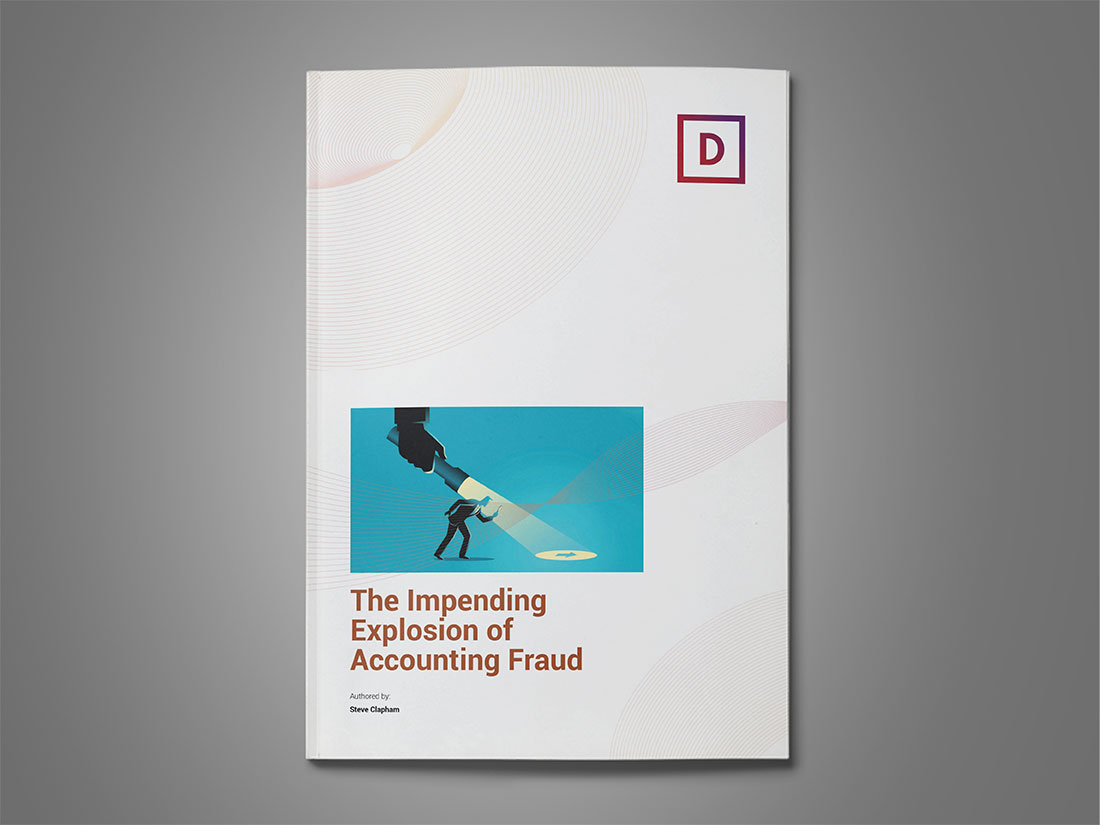The Impending Explosion of Accounting Fraud
Preamble
The last 18 months has seen three major corporate collapses in the UK, and much of this has been attributed to audit failures, leading to a wide-sweeping review of how audits are conducted. In particular, a huge amount has been written about the first of these, Carillion and its ineffectual audit, but unfortunately, I believe Carillion could be the tip of the iceberg and the next few years is likely to see an explosion in the discovery of frauds, not just in the UK, but internationally. After the last long bull market in the 1990s, a series of massive frauds were uncovered –Enron in 2000, WorldCom, Qwest and Global Crossing the following year, Tyco in 2002, and HealthSouth in 2003 – in the space of just four years, nearly $0.5 trillion of market cap evaporated (probably $1.5 trillion today).
Major accounting collapses in last cycle
| Year | Company | Size of losses ($bn) |
|---|---|---|
| 2000 | Enron | 78 |
| 2001 | WorldCom/Qwest/Global Crossing | 295 |
| 2002 | Tyco | 60 |
| 2003 | HealthSouth | 50 |
| Source: Behind the Balance Sheet, from various sources | ||
“Brokerage analysts in most jurisdictions in developed markets are today far less experienced than 20 years ago – they follow many more companies, are lower paid, and simply don’t have the time to investigate dubious accounting.”
Are we sufficiently immune from this?
Accountants and regulators would likely claim that this could not happen now, thanks to the introduction of new accounting rules and Sarbanes Oxley in the US. While new accounting rules such as IFRS 15 (it introduced much stricter rules on revenue recognition) have reduced the scope for manipulation, smart CFOs will fund ways round any rules. Certainly Sarbanes Oxley has helped internal control in the US, but it has not been adopted universally.
And although such developments have made life harder for fraudsters, they have not closed all the loopholes, and no rules could. Just look at Valeant, the pharmaceutical giant which was revealed to be manipulating its earnings, where $80bn of value evaporated in nine months in 2015/16, after short seller Citron Research published a damning report. Fortunately, we have more short sellers today – they publish their findings to smash the target’s share price and allow them to bank a profit. These forensic analysts have uncovered many frauds – one recent report raised major questions about luggage maker Samsonite, forcing its CEO to resign. That this is the main difference in investor protection today is hardly a pat on the back for regulators, nor does it mean that all frauds have been discovered.
“Large cap fraud have premium ratings because they have above market growth rates, but it’s easy enough to produce above market growth if you are making the numbers up.”
Why the problem could be bigger
Accounting scams are as prevalent today, and are possibly even more popular than in past cycles, for several reasons.
- First, a long and lucrative bull has increased the pressure on company executives to continue a track record of successive quarterly growth in earnings. It also breeds complacency and a lack of scepticism among investors.
- Second, the incentives for fraud are much greater than formerly. CEOs, particularly in the US, but also internationally, are enjoying unprecedented compensation packages. Faced with the prospect of a multi-million performance award, executives are hugely incentivised to bump their earnings using accounting tricks.
- Meanwhile, brokerage analysts in most jurisdictions in developed markets are today far less experienced than 20 years ago – they follow many more companies, are lower paid, and simply don’t have the time to investigate dubious accounting. Predominantly, their primary focus is to predict the next quarterly earnings number.
- The universe of quoted stocks has shrunk by half in the last 20-odd years. Many stocks have been taken over by industry competitors or by private equity, which has been buying up credible companies at the smaller end of the market; incumbent management are incentivised to sell, as they are rewarded with equity kickers by the new owners. Bronte Capital’s John Hempton, one of the leading shorters, recently said “there is quite an absurd amount of small cap fraud”. He also sees a lot of large cap fraud – these companies have premium ratings because they have above market growth rates; he points out that it’s easy enough to produce above market growth if you are making the numbers up.
There is today therefore a greater incentive to manipulate eps, and less chance of being discovered.
“Fortunately, we have more short sellers today – they publish their findings to smash the target’s share price and allow them to bank a profit. These forensic analysts have uncovered many frauds.”
Weeding out naked swimmers.
Inevitably, the bull market will end at some point and we shall have a bear market. There are signs that the US market is already to wane, although we may need a recession to induce a major correction. In bear markets, frauds are more naturally exposed – as Warren Buffett pointed out, “it’s only when the tide goes out that you learn who has been swimming naked” – and this time, we shall see major casualties.
Some smart investors are already prepared. A number of London’s largest hedge funds have hired forensic accountants. A major long only institution last year asked me to develop a forensic accounting training course for their global analyst team, and now well over 100 professional analysts and portfolio managers in London and Edinburgh have taken our Forensic Accounting Course, which has been incredibly well received. In conjunction with DICKENSON, I am now bringing the course to Mumbai, India on 26-27 June, 2019, in a two day format – see their website for details [LINK].
Steve Clapham
Steve is the founder of Behind the Balance Sheet, a research consultancy which specialises in in-depth investment research and analyst training.
The original version of this article appeared in the Hardman Monthly in August 2018
© Copyright The Balance Sheet Surgery LLP, 2019
Not to be reproduced in whole or in part without permission

The Impending Explosion of Accounting Fraud
To download and save this article.
Authored by:
Steve Clapham
The Balance Sheet Surgery LLP.


Leave A Comment